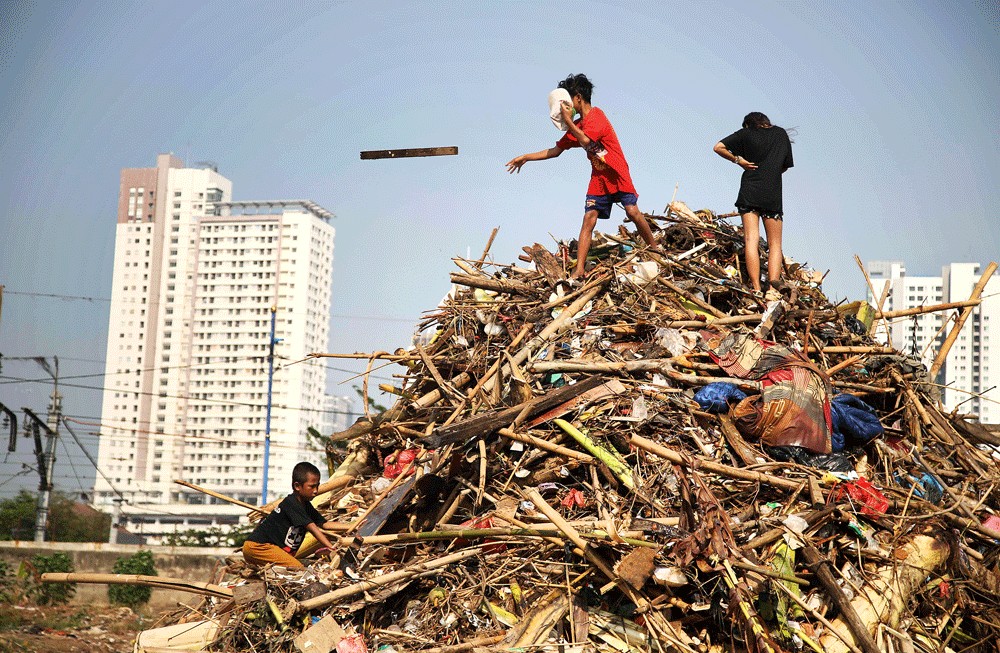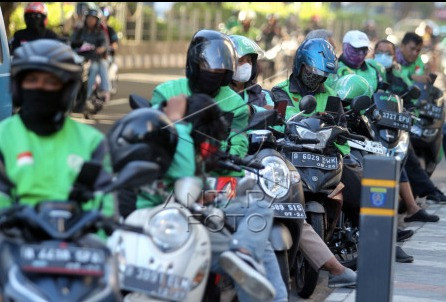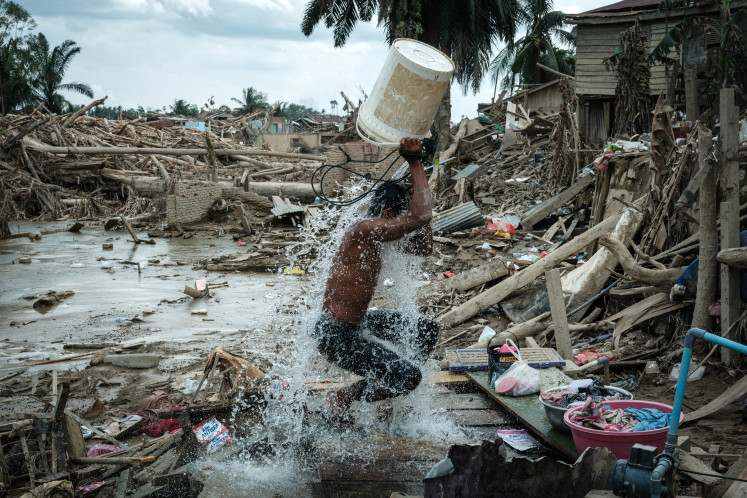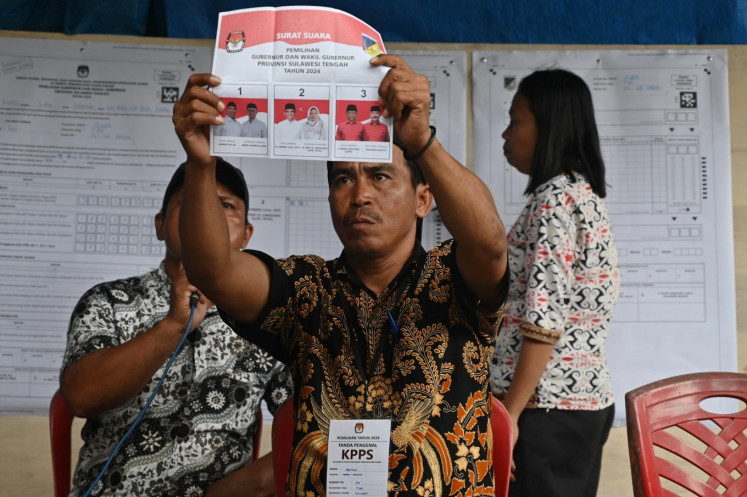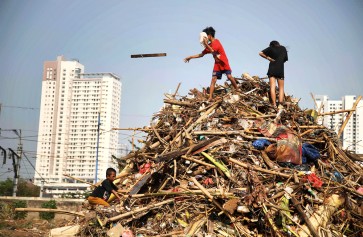Popular Reads
Top Results
Can't find what you're looking for?
View all search resultsPopular Reads
Top Results
Can't find what you're looking for?
View all search resultsBan trash fires, Jakarta, and help the air
Some 1.1 billion tons of waste — more than 40 percent of the world’s garbage — is burned in open piles, the study’s authors found, contributing more emissions than had been previously known, especially in developing countries like Mexico, Ghana and, yes, Indonesia.
Change text size
Gift Premium Articles
to Anyone
J
akarta’s legendary macet (gridlock) has been surpassed by air quality as the perennial “go-to” topic of conversation in the city.
Every day for the past several months, the Air Quality Index in Jakarta has hovered between 150 and 190, well within the unhealthy range and among the worst readings in the world. The dull brown soup we are breathing is damaging our health, our children’s health and our mood.
Why has this happened? Commuters can alter their travel schedules and now make use of the MRT to mitigate the inconvenience of stifling traffic, but their breathing schedules afford less flexibility. The air quality problem is serious and omnipresent and does not discriminate; rich or poor, we all need air. It is particularly threatening to babies and young children whose lungs can be permanently damaged by being exposed to high pollution levels.
City officials have consistently stated a commitment to address the issue and even expanded the politically unpopular odd/even travel restrictions as an illustration of a will to make difficult choices. Yet despite being the hot topic in the Big Durian for months now and even spurring pending litigation, efforts to date have not been able to produce substantial or sustainable improvements. We all wait for rain and hope that helps but recent sporadic rains have barely made a dent in the murky air quality.
Why is this?
Most air pollution comes from industrial facilities with largely fixed demands and the massive number of vehicles clogging our roads. But changing this will take time and have complicated economic considerations (including the cost for the budget-constrained government). Industrial pollution is a particular concern given the government’s environmental regulations, which, if properly enforced, would alleviate some of the air pollutions in the city.
Can anything be done other than just griping about the problem and adding it to the list of irritants Jakartans cope with?

